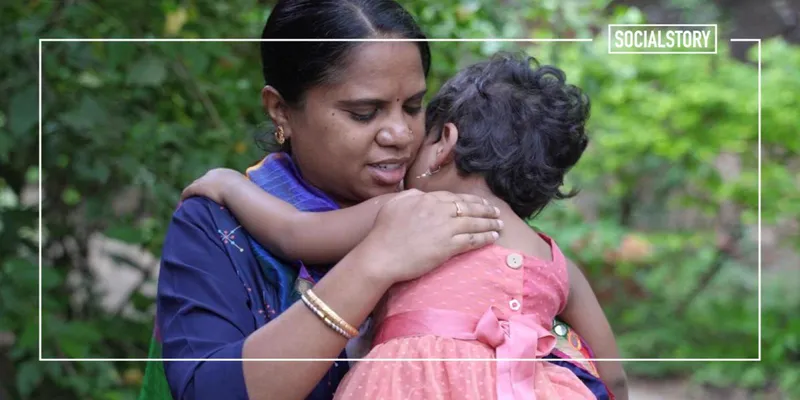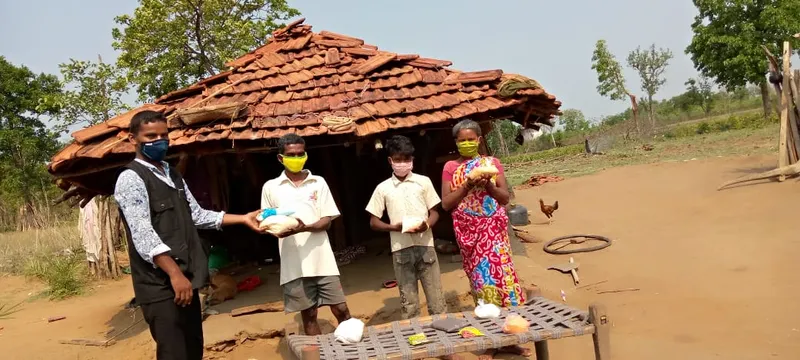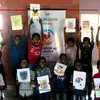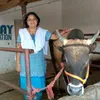[Year in Review 2021] Amid COVID-19, these 10 non-profits created social impact this year
Here is a look back at the social initiatives and work done by the social enterprises, organisations and corporates throughout 2021.
On one hand, COVID-19 affected the livelihood of people across the world, but it also brought together people for a single cause – helping people during the pandemic.
The pandemic has affected everyone’s lives in one way or another – from people losing loved ones, students finding it difficult to access education, to families now under financial distress. This has led to an urgent call for NGOs to step in, and many social enterprises are working hard to help people.
To recognise the important work of these organisations, SocialStory took a look at 10 such non-profits that have done commendable social work.
Saarthi Education empowered women and educated children
Non-profit enterprise Saarthi Education has been solving the dual issues of poor education and women unemployment in urban poor communities through an innovative, hybrid programme that blends offline and online efforts.

It provides a direct-to-home service and works with mothers and children aged between five and 10 years (from kindergarten to Class V). The programme is delivered to mothers via community-based women volunteers who are trained to be Saarthi's Relationship Managers (RM).
Amidst the COVID-19 pandemic, the non-profit launched a WhatsApp-based intervention programme for children in urban poor communities. Each community has a relationship manager — usually a woman — who enrols 40-50 kids in her batch and is paid a stipulated amount. Besides its educational initiatives, Saarthi also created a fund for direct cash transfers to families in financial distress.
When the cases in India were exponential, the NGO also created a live dashboard for oxygen cylinders, beds, etc to handle the increasing demand.
It verified leads to accurately fulfil requests from communities as they did not have access to Twitter and other portals.
Garima Greh working for transgenders
The transgender community in India faces deep-rooted stigmatisation, discrimination and injustice. More often than not, they struggle for basic necessities like food, shelter, and work.

Garima Greh, a shelter for the transgender community in Kolathur, Chennai, is trying to make it easier for the community by providing them with food and shelter. It already provides a home to eight trans men and women.
The shelter is the first of its kind in Tamil Nadu allocated by the Ministry of Social Justice and Empowerment under the Transgender Persons (Protection of Rights) Act, 2019.
Besides food and shelter, Garima Greh also helps them join the mainstream by providing them with a livelihood.
SOS Children's Villages and GiveIndia helped kids orphaned during COVID-19
The pandemic dealt many unfortunate children across the world a crippling blow. Children who suddenly lost their parents to COVID-19 are not only left emotionally vulnerable and face an uncertain future; they are also at greater risk of falling victim to trafficking, exploitation, child marriage, and other social evils.
One of GiveIndia's NGO partners is SOS Children's Villages of India which provided accommodation, nutrition, education, and counselling to the thousands of children who were orphaned and whose lives were upended by the pandemic.

In collaboration with GiveIndia, SOS Children's Villages recently started a fundraiser to keep supporting the children in their care, and to ensure that all their basic needs, from food and shelter to education, were met.
SOS will use the funds for food and nutrition to ensure proper growth and development; medical expenses to provide essential healthcare services; educational expenses, including school fees, books and stationery; social and psychological support through counselling sessions; clothing and hygiene; and salaries to caregivers.
Sonu Sood Charity Foundation saved lives of 22 COVID-19 patients
Actor and humanitarian Sonu Sood and his team helped save over 22 COVID-19 positive patients in Bengaluru. The team worked the entire night to provide oxygen to Arka Hospital in Bengaluru as soon as they got an SOS call from the hospital.

Actor, producer, and humanitarian Sonu Sood
On May 3, 2021, Arka Hospital had sounded distress calls in need of urgent oxygen supply. And on Tuesday, the hospital even lost two patients to the virus due to the lack of oxygen cylinders.
A member of the Sonu Sood Charity Foundation received a call from Satyanarayan, the inspector of Yelahanka Old Town, who told him about the situation.
The team got into action and arranged one cylinder in the middle of the night. In the morning, they managed to arrange 15 more cylinders for the hospital. In fact, at one point, cops also sprang into action and donned the roles of ambulance drivers in their absence.
Kitchen of Flavours distributed free meals to COVID-19 patients, families
With several people undergoing home isolation or taking care of someone suffering from COVID-19, they are unable to make meals for the household.

To help such families and individuals, home chefs, and restaurant owners are providing them with fresh meals. Kitchen of Flavours is one such community of home chefs, professional chefs, and celebrity chefs, which is providing hygienic, homemade, and fresh food to COVID-19 patients free of cost.
Started in March 2021, the initiative had people who took orders from different social media platforms, including WhatsApp and phone calls. These home chefs then deliver the food through either Swiggy’s Genie feature and WeFast apps.
Perroayuda Welfare Foundation fed over 900 dogs a day during lockdown
Perroayuda Welfare Foundation is a youth-based organisation. Most of the team are within the age group of 20-25. These volunteers work under different departments, and in fact, the board of directors are of the same age group.

The team of volunteers
The NGO’s main objective is to lend a helping hand to stray animals in need wherever one finds them, provide them with food, care, love, medical treatment, and organise fun feeding drives for awareness and adoption.
During the COVID-19 pandemic, over 111 active volunteers continued to feed their local strays. On average, they feed over 900 strays throughout Delhi-NCR and in a few parts of Ghaziabad. Due to the lockdown, the volunteers fed stray dogs and other animals in their locality.
Flipkart’s delivery hub managed completely by people with disabilities
Flipkart has expanded its employee workforce diversity initiative with the opening of a new delivery hub in Delhi to its supply chain network, which will be managed end-to-end by 50 employees with disabilities, working in various capacities, including delivery executives, cashiers, and team leaders.
1566393010363.png?fm=png&auto=format)
Flipkart introduced the eDAB programme (Ekartians with Disabilities) in its supply chain in 2017 to provide career opportunities for people with disabilities. Through the eDAB initiative, the ecommerce giant aims to build awareness around the capabilities of people with disabilities while helping the existing talent work closely with these capable individuals.
According to the company, through this new effort, Flipkart aims to break stereotypes around the employability of people with disabilities and create more awareness around the capabilities of the community as they manage the hub and its operations end-to-end, making more than 1,100 deliveries every day.
Aahwahan Foundation’s 'Laptop Bank' helped bridge the e-learning gap
Ever since the pandemic outbreak, education has seen a paradigm shift. From online learning to other digital educational programmes, children are now dependent on technology as a medium for education. But, this has not been easy for students from disadvantaged communities. Many low-income households had no access to mobile phones, or one basic phone that they used between the entire family.

Understanding this burgeoning problem and realising the significance of online learning and technological advancement, Bengaluru-based NGO Aahwahan Foundation was quick to take action and come to the rescue of the needy.
The foundation’s campaign, “Laptop Bank”, a move aimed towards enabling education, has benefitted over 3,031 students in metros including Bengaluru, Mumbai, Pune, Delhi, and Noida, and has distributed more than 433 laptops.
Aimed at students from EWS (Economically Weaker Sections) Society, under the initiative, students can borrow laptops and continue their studies from home for a specific period.
Save the Children ensured health, wellness and education to over 15 lakh children
Amid the coronavirus pandemic, while children from middle and higher sections of society comfortably study at home with access to laptops and other technology, those from the underserved sections face the bulk of their problems within their homes. Most of them have been completely removed from their schools and have no safe space.

Distribution of essentials in the villages
During the pandemic, Save the Children have been trying hard to provide children with much-needed nutrition and with educational opportunities in some small ways. They have also been aiding their families that have been equally impacted by the pandemic.
Through its ‘ProtectAMillion’ mission, Save the Children, India has worked with anganwadis to ensure that the children continue receiving a secure meal. They opened some of the activity centres after the lockdown was partially lifted.
Lakdi Bank provided the marginalised dignity in death
With the aim of supporting those families whose loved ones have succumbed to coronavirus, social worker and entrepreneur Sanjay Rai Sherpuria decided to start a firewood collection initiative called Lakdi Bank. Besides sourcing wood, he and his team of 45 members and over 5,000 volunteers would also offer financial aid to those who were unable to afford to pay for the last rites of their loved ones.

The helpers and volunteers at the bank also help people to procure slots at the various cremation grounds. The initiative gained popularity through posters and word of mouth, and the organisation has set up over 10 Lakdi Banks around various riverbanks in Ghazipur, Uttar Pradesh. Each pier also has a team of about 5 people who supervise the cremation process to avoid any confusion.
Edited by Kanishk Singh





![[Year in Review 2021] Amid COVID-19, these 10 non-profits created social impact this year](https://images.yourstory.com/cs/5/79900dd0d91311e8a16045a90309d734/collage-1640102486726.png?mode=crop&crop=faces&ar=2:1?width=3840&q=75)






![[Funding alert] Edtech startup Vedantu raises $12.56M from Legend Cap, Ohana Holding](https://images.yourstory.com/cs/2/b87effd0-6a66-11e9-ad33-3f8a4777438f/Imagedsk31567099489336.jpg)
